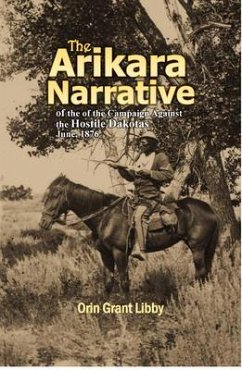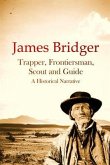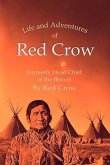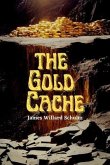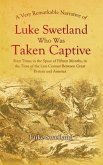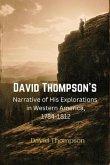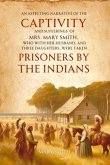"Libby...earned the title the 'Father of North Dakota History'... Libby's account cannot be disregarded in any serious study of the Battle of the Little Bighorn." -Encyclopedia of the Great Plains
"Scouts related their story...to historian Orin G. Libby...the result was...one of the most important sources on the Battle of the Little Bighorn." The Encyclopedia of North American Indian Wars (2011)
"Libby published a valuable set of battle stories obtained from Arikara scouts." -The Battle of the Greasy Grass/Little Bighorn (2013)
"According to the Arikara Narrative...Custer often warned his scouts to look out for themselves, for every squad of soldiers had scouts and they might be mistaken for the enemy." -Friendly Fire in the Literature of War (2017)
"Valuable details as to the actions of some of the scouts in the valley fight." - The Fights on the Little Horn Companion (2014)
Considered one of the most important source documents for the study of the Battle of the Little Bighorn, Custer's Last Stand, the Arikara Narrative is a fascinating account of this seminal event. No scholar of the Little Bighorn conflict omits this book from their bibliography.
George Armstrong Custer rode to the Little Bighorn with forty Arikara scouts (among others). Of this group, nine survivors were interviewed in 1912. Their accounts of the battle were carefully taken by and then published by author Orin Grant Libby (1864-1952 ) in his 1920 book "The Arikara Narrative of the Campaign Against the Hostile Dakotas."
From inside the book:
"The purpose in publishing this material on the Indian campaign of 1876 is twofold. Merely as a matter of justice to the Arikara Indian scouts their version of the campaign in which they played an important part should have long ago been given to the public. Nearly every other conceivable angle of this memorable campaign has received attention and study. But during the past generation the Arikara scouts, true to their oath of fealty to the government as they understood it, have remained silent as to their own part in those eventful days.
"The present narrative is designed to make public the real story of the Arikara Indian scouts who served with Terry and under the immediate command of Custer. In August, 1912, the nine survivors of some forty of these scouts met at the home of Bear's Belly on the Fort Berthold Reservation, at Armstrong.... Each of the scouts gave that special portion of the whole with which he was most familiar. The narrators were very scrupulous to confine themselves to just that portion of the common experience to which they were eye witnesses."
About the author:
Orin Grant Libby was born on June 9, 1864, in Wisconsin and died on March 29, 1952. At the University of Wisconsin he was one of the first graduate students of the historian Frederick Jackson Turner. Libby became a professor of history at University of Wisconsin. In 1902 he became professor and chair of history at the University of North Dakota.
Libby was known as the "Father of North Dakota History." He served as the secretary of the State Historical Society.
"Scouts related their story...to historian Orin G. Libby...the result was...one of the most important sources on the Battle of the Little Bighorn." The Encyclopedia of North American Indian Wars (2011)
"Libby published a valuable set of battle stories obtained from Arikara scouts." -The Battle of the Greasy Grass/Little Bighorn (2013)
"According to the Arikara Narrative...Custer often warned his scouts to look out for themselves, for every squad of soldiers had scouts and they might be mistaken for the enemy." -Friendly Fire in the Literature of War (2017)
"Valuable details as to the actions of some of the scouts in the valley fight." - The Fights on the Little Horn Companion (2014)
Considered one of the most important source documents for the study of the Battle of the Little Bighorn, Custer's Last Stand, the Arikara Narrative is a fascinating account of this seminal event. No scholar of the Little Bighorn conflict omits this book from their bibliography.
George Armstrong Custer rode to the Little Bighorn with forty Arikara scouts (among others). Of this group, nine survivors were interviewed in 1912. Their accounts of the battle were carefully taken by and then published by author Orin Grant Libby (1864-1952 ) in his 1920 book "The Arikara Narrative of the Campaign Against the Hostile Dakotas."
From inside the book:
"The purpose in publishing this material on the Indian campaign of 1876 is twofold. Merely as a matter of justice to the Arikara Indian scouts their version of the campaign in which they played an important part should have long ago been given to the public. Nearly every other conceivable angle of this memorable campaign has received attention and study. But during the past generation the Arikara scouts, true to their oath of fealty to the government as they understood it, have remained silent as to their own part in those eventful days.
"The present narrative is designed to make public the real story of the Arikara Indian scouts who served with Terry and under the immediate command of Custer. In August, 1912, the nine survivors of some forty of these scouts met at the home of Bear's Belly on the Fort Berthold Reservation, at Armstrong.... Each of the scouts gave that special portion of the whole with which he was most familiar. The narrators were very scrupulous to confine themselves to just that portion of the common experience to which they were eye witnesses."
About the author:
Orin Grant Libby was born on June 9, 1864, in Wisconsin and died on March 29, 1952. At the University of Wisconsin he was one of the first graduate students of the historian Frederick Jackson Turner. Libby became a professor of history at University of Wisconsin. In 1902 he became professor and chair of history at the University of North Dakota.
Libby was known as the "Father of North Dakota History." He served as the secretary of the State Historical Society.
Dieser Download kann aus rechtlichen Gründen nur mit Rechnungsadresse in A, D ausgeliefert werden.

